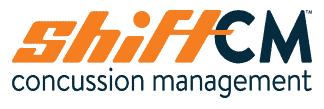The simplest definition of a concussion baseline test is a series of physical and cognitive tests that measure healthy brain function before a sports season starts – and before an injury.
This is a “benchmark” for comparison if a concussion occurs during the season. In the event of a concussion, the results of these tests can be used as a comparison to help your healthcare provider make important return-to-sport decisions (Contently Integration, 2022).
Why is Baseline Testing Important?
- Accurate Diagnosis: Baseline tests help medical professionals accurately diagnose the severity of a concussion by comparing pre-and post-injury cognitive and physical functions.
- Personalized Treatment: With a clear understanding of an athlete’s normal brain function, healthcare providers can tailor treatment plans to the individual’s needs.
- Safe Return to Play: Baseline testing ensures that athletes do not return to play until their brain function has returned to pre-injury levels, reducing the risk of further injury.
How Could a Concussion Baseline Test Help?
When properly used and interpreted, a concussion baseline test can add helpful information to the management of concussions by giving healthcare practitioners insight into an athlete’s individualized pre-injury function and abilities (Contently Integration, 2022). Simply put, we better understand an athlete’s state of health and what results they should achieve when fully recovered.
Having access to these test scores after a concussion injury can provide healthcare practitioners with a set of personalized, objective data that could be used to make more informed and safer return-to-play decisions for an injured athlete.
How is Baseline Testing Conducted?
Baseline testing usually uses computerized and physical tests. The process typically involves:
- Cognitive Testing: Athletes complete tasks that measure memory, attention, and reaction time (ImPACT Baseline Concussion Test Online, n.d.).
- Visual-Vestibular Testing: Tests will measure head and eye movement precision and ability.
- Balance Testing: Tests will measure balance to evaluate the athlete’s physical stability.
Who Should Undergo Baseline Testing?
Baseline testing is recommended for athletes in contact sports, such as football, hockey, rugby, lacrosse and soccer. However, it can be beneficial for any athlete, since concussions can happen in many different sports.
Should we be Relying on Symptoms Alone for Return to Play?
Symptoms disappearing or going away after a concussion are considered a poor indicator of brain recovery. If a concussed athlete shows no more symptoms, this does not mean that they have fully recovered from their concussion.
As we know, a concussion causes disturbances in brain cells, changes in blood flow to the brain, and several other functional issues. The safest thing that an athlete can do is avoid returning to high-risk sports until after they have fully recovered from their concussion; not just from their symptoms while being advised by a qualified healthcare professional.
How to Prepare for a Baseline Test
Preparing for baseline testing is straightforward but essential to ensure accurate results. Here are some tips for athletes:
- Get a Good Night’s Sleep: Aim for at least 7-8 hours of sleep the night before the test to ensure your brain is well-rested.
- Stay Hydrated: Drink plenty of water leading up to the test to keep your body and mind functioning optimally.
- Eat a Healthy Meal: Eat a balanced meal before the test to maintain energy and concentration.
- Avoid Caffeine and Sugar: These can affect cognitive performance and skew the test results.
- Follow Instructions: Listen carefully to the instructions given by the test administrator and ask questions if anything needs to be clarified.
- Stay Calm and Focused: Approach the test with a calm mindset. Stress and anxiety can impact your performance.
By following these steps, athletes can ensure they are in the best possible condition for baseline testing, leading to more accurate and reliable results. If you have any more questions or need further details, feel free to ask!
How Often Should You Get a Baseline Concussion Test?
The frequency of these tests can vary based on age and activity level:
- For children 12 and under, it is recommended that they get a baseline test every year (ImPACT Baseline Concussion Test Online, n.d.).
- For individuals 13 and older, a baseline test is suggested every two years (ImPACT Baseline Concussion Test Online, n.d.).
Annual testing is often recommended for athletes, especially those in high-impact sports, to ensure accurate and up-to-date baseline data.
Conclusion
Concussion baseline testing is a proactive approach to managing and treating concussions. Establishing a pre-injury benchmark allows for more accurate diagnoses, personalized treatment plans, and safer return-to-play decisions. As awareness of concussion risks grows, baseline testing will play a vital role in protecting athletes’ health and well-being.
At Shift Concussion Management we perform baseline tests in house. Contact us to get yours completed.
References
- Contently Integration. (2022, May 31). What Is Concussion Baseline and Post-Injury Testing? UPMC HealthBeat. https://share.upmc.com/2022/05/baseline-concussion-testing/
- ImPACT Baseline Concussion Test Online. (n.d.). ImPACT Baseline Test. https://baselinetesting.com/


Leave a Reply